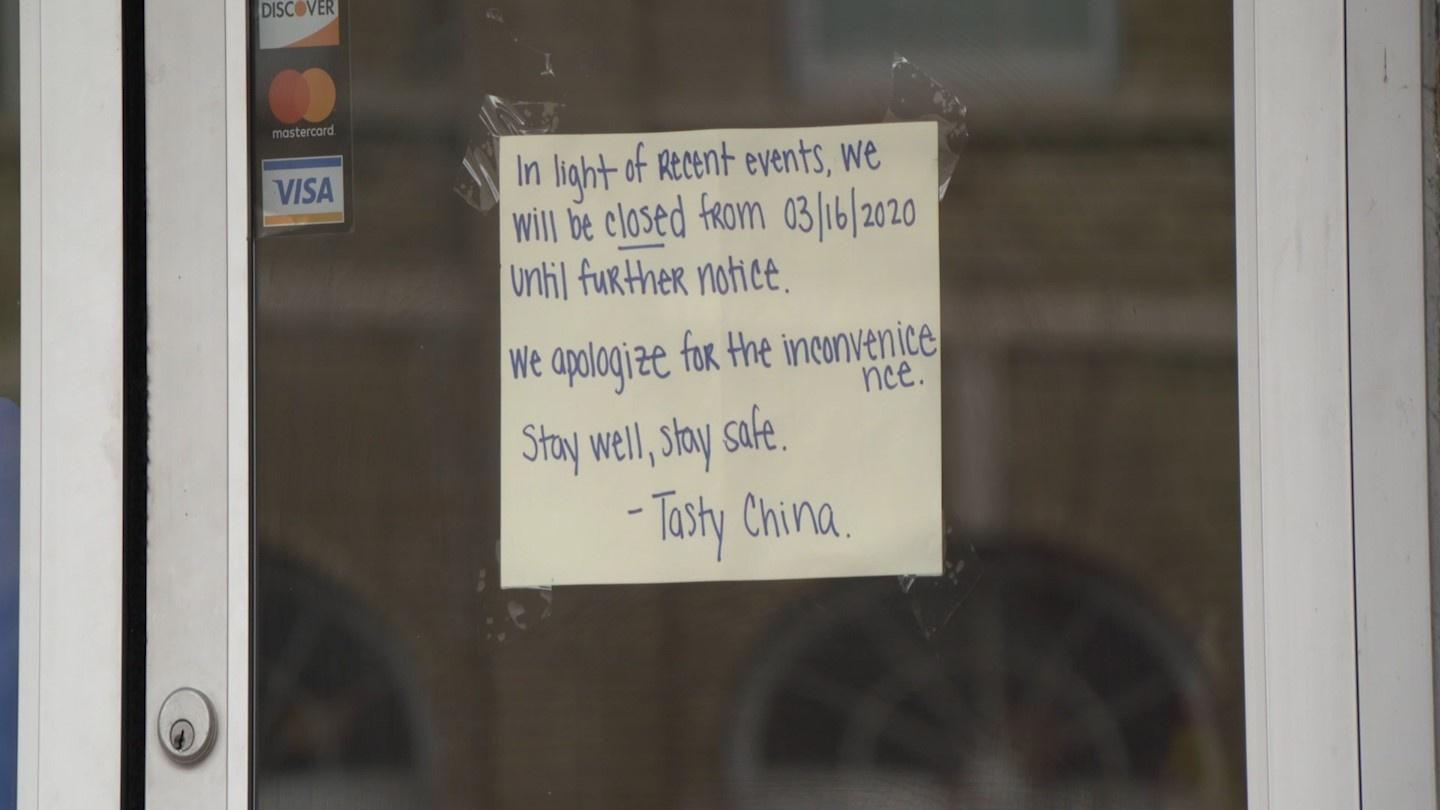BETHLEHEM, PA - In the midst of the ongoing Coronavirus pandemic, racism targeting Asian Americans is spreading.
"Just going out in public and wondering, are people looking at me more? Are people scared off by me?" says Jisu Choi, "And just having that constant thought in my head is definitely different now, for sure."
Choi lives in a COVID-19 hotspot on Long Island. The Korean American and Co-President of the Asian Cultural Society of Lehigh University in Bethlehem says, the experience for Asian Americans during the Coronavirus pandemic comes with new challenges.
"Seeing people that you know even trying to find comic relief in associating the virus with Asians is really frustrating," Choi explains.
And while new research is showing a rise in anti-asian rhetoric online, the Pennsylvania State Police worry victims are hesitant to report incidents to police.
"Just because we have no reports, that doesn’t mean it’s not occurring," explains Lt. William Slaton, of the Pennsylvania State Police's Heritage Affairs Office, "Because again, some victims of hate crimes, or hate crimes in general, they have an emotional toll on the victim. Some victims might not want to report it because they don’t think the community is going to support them or law enforcement is going to support them or law enforcement is going to take the crime seriously. So there’s a strong possibility that hate crimes against Asian Americans in Pennsylvania could be occurring, they’re just not being reported."
The Network Contagion Research Institute, a New Jersey based non-profit that tracks hate speech online, recently published a study called “Weaponized Information Outbreak.” Inside they documented an “outbreak of Sinophobic hate emerging regarding COVID19 on 4-chan, an influential and extremist Web community. The hate speech includes memes, jokes and coded images to promulgate violence and conspiracies' ' against the Asian community. While other research has shown a less pronounced rise in hostile references to China and Chinese people on Twitter. The Pennsylvania State Police understands first hand how crucial it is to monitor hate speech online.
"We have situations like we had at the Tree of Life Synagogue shooting in Pittsburg where the suspect went online and posted hateful messages about Jewish Americans prior to going in and committing a mass murder," Lt. Slaton recalls, "So it’s important to monitor because it could be a precursor to a very violent attack or event."
Experts worry online rhetoric can lead to real life action. The Network Contagion Research Institute reports its findings to government officials as alerts of what could transpire but for many in the Asian community, it already has.
"At school, luckily, I didn’t face any sort of discrimination or bias at Lehigh. But, my parents were definitely worried for my well-being because my dad commutes into NYC every day," Choi tells PBS39 News Tonight Reporter, K.C. Lopez, "So he would tell me how he’s noticed people don’t sit with him anymore and people move away from him and just having that I guess heightened awareness was something I faced now that I’m home."
Meanwhile, President Trump has faced sharp criticism for referring to the novel coronavirus as the “Chinese Virus;” a term he has repeatedly defended.
"It’s not racist at all, no. It comes from China, that’s why. I want to be accurate," the President told reporters on March 18th.
Critics like Lehigh University sophomore and Chinese-Vietnamese American, Wei Ngai , argue the use of the term adds to discrimination and racism against Asian Americans who have a long history of becoming scapegoats for public health crises.
"It was just a way of putting the fear somewhere," Ngai says, "But at this time we should all be together and united in the situation instead of putting the blame on one group of people."
Choi tells Lopez, "It creates an automatic link and connects this big scary pandemic to the Asian American or Asian community."
And the Pennsylvania State Police have taken a stance against it; "I do not recommend calling it anything other than the scientific name in which it is given; which is COVID-19," says Lt. Slaton, "Any other name assigning it to a certain demographic of people has a high potential of increasing the likelihood of hate crimes committed against that demographic."
The President has stopped using the term online and during press briefings. Instead taking to twitter to say, “it is very important to protect our Asian community...and the spreading of the virus is not their fault in any way, shape or form…” But some worry the damage won’t be easily undone.
"When this quarantine is over, I’m concerned about how Asian businesses will be affected," Ngai tells Lopez, "Especially since my family, we own a salon and they’re the main owners of this place. And so I’m worried about whether or not customers will be scared off of coming into their salon in the future.:
And so Ngai is left wondering how that will affect their income in the future.
To report racism, bias or harassment to the Pennsylvania State Police, call their anonymous tip line at 1-800-4PATIPS (1-800-472-8477) or send emails at TIPS@pa.gov
Got a news tip? Email K.C. at KCLopez@wlvt.org




